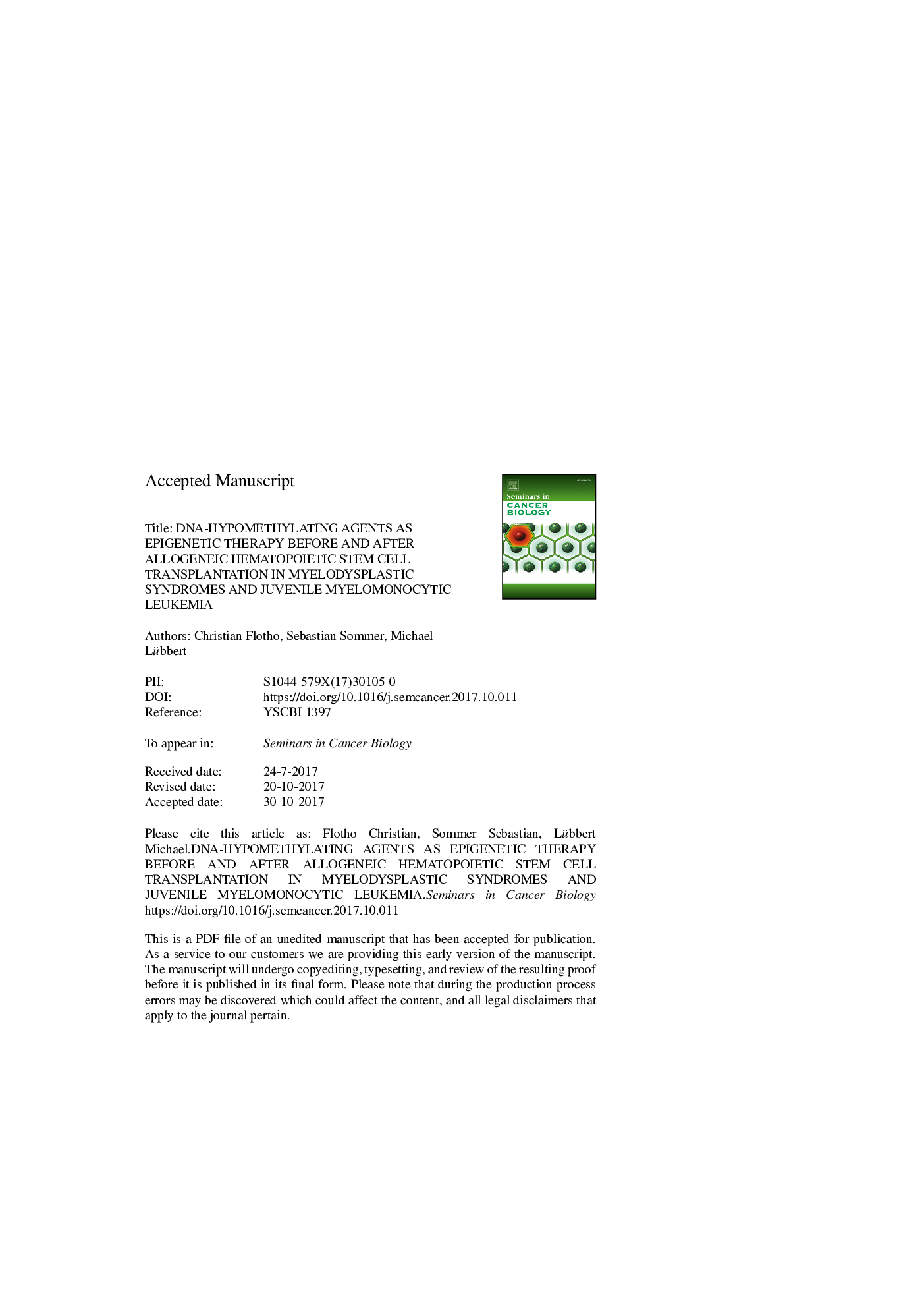| Article ID | Journal | Published Year | Pages | File Type |
|---|---|---|---|---|
| 8361733 | Seminars in Cancer Biology | 2018 | 59 Pages |
Abstract
Myelodysplastic syndrome (MDS) is a clonal bone marrow disorder, typically of older adults, which is characterized by ineffective hematopoiesis, peripheral blood cytopenias and risk of progression to acute myeloid leukemia. Juvenile myelomonocytic leukemia (JMML) is an aggressive myeloproliferative neoplasm occurring in young children. The common denominator of these malignant myeloid disorders is the limited benefit of conventional chemotherapy and a particular responsiveness to epigenetic therapy with the DNA-hypomethylating agents 5-azacytidine (azacitidine) or decitabine. However, hypomethylating therapy does not eradicate the malignant clone in MDS or JMML and allogeneic hematopoietic stem cell transplantation (HSCT) remains the only curative treatment option. An emerging concept with intriguing potential is the combination of hypomethylating therapy and HSCT. Possible advantages include disease control with good tolerability during donor search and HSCT preparation, improved antitumoral alloimmunity, and reduced risk of relapse even with non-myeloablative regimens. Herein we review the current role of pre- and post-transplant therapy with hypomethylating agents in MDS and JMML.
Keywords
Related Topics
Life Sciences
Biochemistry, Genetics and Molecular Biology
Biochemistry
Authors
Christian Flotho, Sebastian Sommer, Michael Lübbert,
